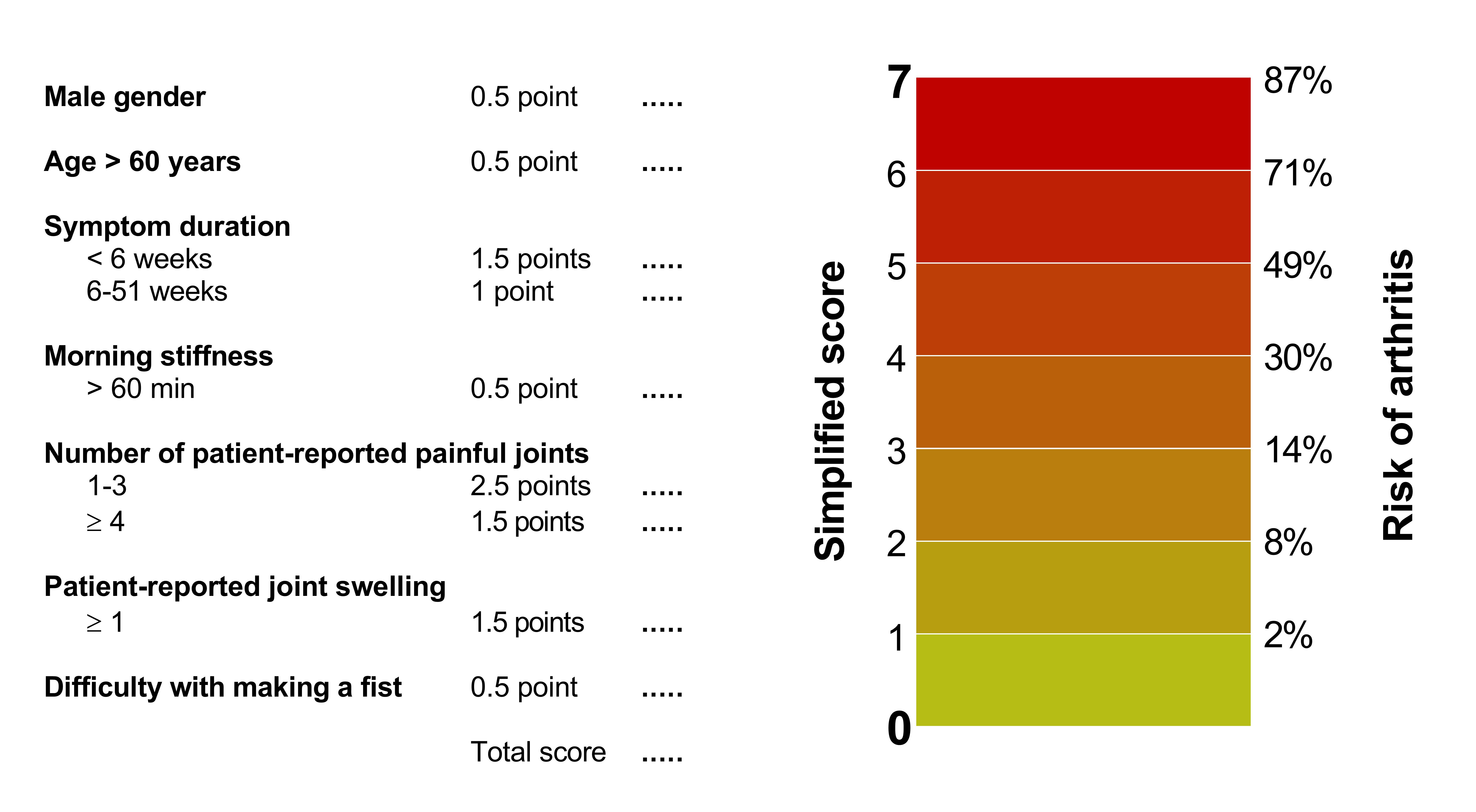Session Information
Date: Sunday, November 5, 2017
Title: Epidemiology and Public Health II: Non-Genetic Risk Factors for Incident Disease
Session Type: ACR Concurrent Abstract Session
Session Time: 4:30PM-6:00PM
Early treatment of rheumatoid arthritis requires the early detection of arthritis. This is generally done by joint examination and difficult for general practitioners (GPs). To promote early recognition of arthritis, the Leiden Early Arthritis Recognition Clinic (EARC) was initiated, where GPs can send patients if in doubt about arthritis (instead of ‘wait-and-see’). Although the EARC importantly improved the early identification, this approach may not be easily implemented at other places. This study determined the discriminative value of a combination of symptoms and other signs for clinical arthritis.
Methods:
1,288 patients visited the EARC between 2010 and 2015. Symptoms and signs were studied with the presence of synovitis (joint examination by experienced rheumatologist) as outcome. Parameters were identified using multivariable logistic regression in 644 patients and validated in another 644 patients. A simplified rule was derived to facilitate application in clinical practice.
Results:
41% had arthritis at examination. Male sex, age ≥60 years, a short symptom duration, morning stiffness >60 minutes, a low number of tender joints, the presence patient-reported swollen swelling and difficulties with making a fist were significantly associated with the presence of arthritis in the derivation cohort. A simplified rule, consisting of these 7 items, was generated (Figure); it had an AUC of 0.74 (95%CI 0.78-0.70). When a sensitive rule is preferred, a cut-off of ≥4 yields a sensitivity of 94%; when a specific rule is preferred the cut-off ≥6 has a specificity of 92%. Risks of arthritis were determined, and also estimated for a setting in which the prevalence of clinical arthritis in patients with suspected arthritis was half of that observed here.
Conclusion:
A rule composed of clinical parameters had a reasonable discriminative ability for clinical arthritis. Ultimately this could assist GPs in decision-making in patients with suspected inflammatory arthritis.
Figure. The Clinical Arthritis Rule (CARE) and corresponding risks of the presence of inflammatory arthritis per score.

To cite this abstract in AMA style:
ten Brinck RM, van Dijk BT, van Steenbergen HW, le Cessie S, Numans ME, van der Helm-van Mil AHM. Development and Validation of a Clinical Rule to Facilitate Recognition of Clinical Arthritis By General Practitioners [abstract]. Arthritis Rheumatol. 2017; 69 (suppl 10). https://acrabstracts.org/abstract/development-and-validation-of-a-clinical-rule-to-facilitate-recognition-of-clinical-arthritis-by-general-practitioners/. Accessed .« Back to 2017 ACR/ARHP Annual Meeting
ACR Meeting Abstracts - https://acrabstracts.org/abstract/development-and-validation-of-a-clinical-rule-to-facilitate-recognition-of-clinical-arthritis-by-general-practitioners/
